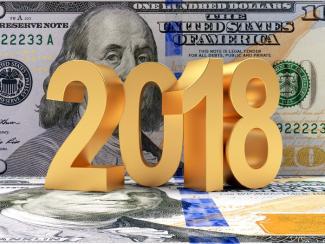
Key Lessons Learned from the 2008 Financial Crisis
image credit fool.com
As we observe the 10th anniversary of the financial crisis, there is a lot we can reflect on and learn from to avoid making the same mistakes in the future.
September 15th, 2018 marked the 10th anniversary of the 2008 financial crisis—10 years since Lehman Brother filed for bankruptcy and taxpayers began bailing out big banks. Since October 3, 2018, marked World Financial Planning Day, it is the perfect time to re-evaluate your financial strategy and make sure you avoid the personal finance mistakes made a decade ago.
While there are dozens of lessons to learn from the missteps taken in 2008, there are a few core takeaways that can be applied to your finances today to keep you on track and moving in the right direction towards your financial goals. Abiding by these financial guidelines will help you protect your finances, even if we enter another recession.
Here is a checklist of top tips for managing your finances, inspired by the events of the financial crisis:
- Get Personal. Develop a thorough understanding of your personal situation (cash reserves, debt, and current retirement contribution level) and let that guide your decisions.
- Develop a Statement of Cash Flows. Identify how much money is coming in and how much is going out to develop a short-, intermediate- and long-term game plan.
- Maintain a Healthy Emergency Reserve Fund. Keep a safety net (six to 12 months of expenses for workers and 12 to 24 months for retirees) to avoid selling assets and/or invading retirement accounts.
- Maintain a Diversified Portfolio. One of the best ways to prevent emotional swings is to create and adhere to a diversified portfolio that spreads out your risk across different asset classes.
- Keep Making Retirement Contributions. If you need to reduce the amount due to unforeseen circumstances, try to at least capture any company match.
- Manage Cash. If you need money within a year or so, keep it in a safe place, like a checking, savings or money market account, a short-term Certificate of Deposit (CD) or a bond.
For more information and an interactive timeline of events leading up to the economic collapse, check out CFP Board’s LetsMakeAPlan.org.
For more guidance on working through these steps and creating a comprehensive financial plan, talk to a CERTIFIED FINANCIAL PLANNER™ professional today or visit www.letsmakeaplan.org
ABOUT CFP BOARD
The mission of Certified Financial Planner Board of Standards, Inc. is to benefit the public by granting the CFP® certification and upholding it as the recognized standard of excellence for competent and ethical personal financial planning. The Board of Directors, in furthering CFP Board’s mission, acts on behalf of the public, CFP® professionals and other stakeholders. CFP Board owns the certification marks CFP®, CERTIFIED FINANCIAL PLANNER™, CFP® (with plaque design) and CFP® (with flame design) in the U.S., which it awards to individuals who successfully complete CFP Board’s initial and ongoing certification requirements. CFP Board currently authorizes over 81,000 individuals to use these marks in the U.S.
Blue Ocean Global Wealth intends the contents of this article will be viewed for informational and educational purposes only. The information in this article is not intended as tax, legal, or investment advice. It may not be used for the purpose of avoiding any federal tax penalties. Please consult legal or tax professionals for specific information regarding your individual situation. The opinions expressed and information provided are for general purposes only, and should not be considered a solicitation for the purchase or sale of any security or investment.
Images, content, and published articles are for reference and illustrative purposes only. Under no circumstances should any image, logo, content or article be viewed as an endorsement. This article is for educational purposes only. Under no circumstances should the information provided herein be relied upon as legal, tax, or investment advice.

